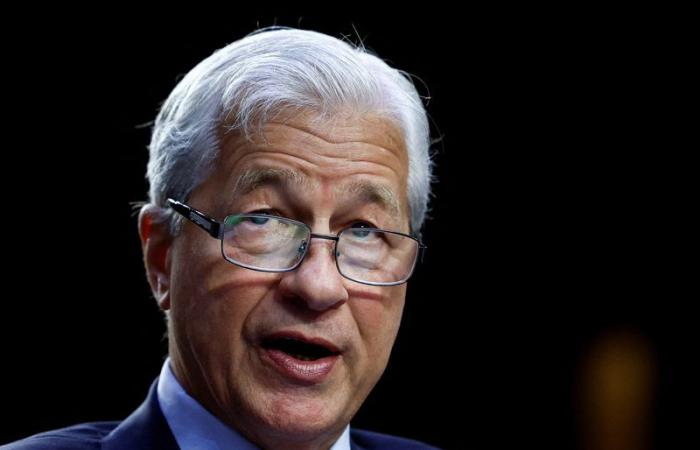The results of the queen of Wall Street are always impatiently awaited by Zonebourse analysts.
This year again, JP Morgan does not lose its crown. Profit per share increases by 22%, dividend by 17% and shareholders’ equity by 11%. Return on equity reaches 18%, even with prudential ratios at their highest. No other major bank is capable of such performance in the United States, and even less so in Europe.
Unsurprisingly, the personal banking segment is slowing down. Loan volume increases by only 1% — thanks to credit cards — and the net interest margin declines, which is what we expected, although much more dramatically than expected.
Above all, we note provisions increasing by 18% and defaulting loans increasing by 48% – undoubtedly a sign that the rise in rates is jeopardizing the solvency of the most precarious borrowers. Added to this is a clear increase in remuneration expenses to explain the segment’s profit, which falls by 17% in 2024 compared to the previous year.
As at Goldman Sachs or Jefferies, the commercial banking & investment segment recorded a more profitable year – although, again, perhaps in less proportions than expected. The segment’s profit increases by 23% in 2024, driven primarily by investment banking activities.
As the two aforementioned segments operate at comparable scales — on an annual basis, roughly $70 billion in revenue and $20 billion in profit each — the decline of the first is offset by the progress of the second.
A bit less strategic, the asset management segment — $21.5 billion in revenue and $5.4 billion in profit in 2024 — continues to show excellent performance. On top of all this comes an exceptional gain of $7.9 billion obtained through the sale of securities held by JP Morgan in Visa; it is this last operation which represents almost the entire consolidated profit for the year.
Notably, JPM used the proceeds from the sale of its Visa shares to repurchase its own securities even though these have been valued since the start of 2024 well above twice the value of equity. Now, they are even approaching x3 equity, their highest valuation level in twenty years.
The arbitration is surprising in light of Jamie Dimon’s comments last May, when he considered share buybacks undesirable at such high multiples. The bank’s charismatic general manager, himself a king of Wall Street, known for his prudence and his sense of timing, also sold a large number of shares he owned in his bank this year.






